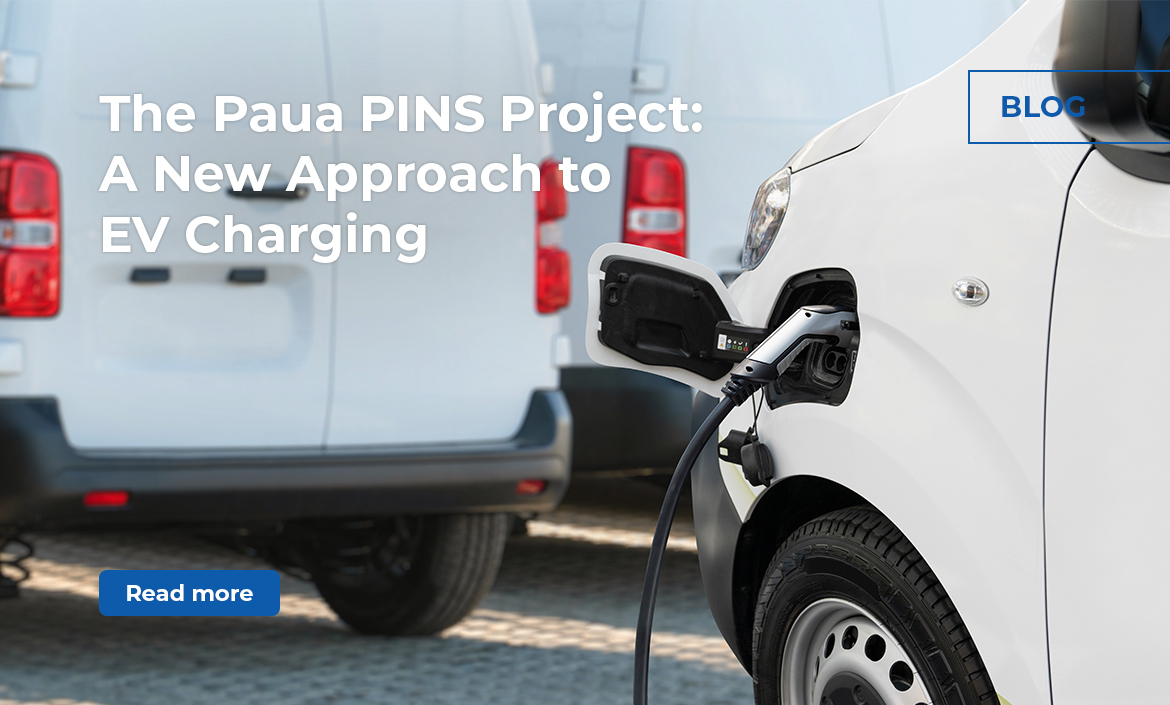Many businesses still face challenges with charging infrastructure. The Paua PINS (Private Infrastructure Network Solution) project, funded by the Department for Transport (DfT), addresses these issues and make EV charging points more accessible for commercial fleets. This innovative project could transform how businesses charge their electric vehicles and boost the adoption of electric vans.
As part of DfT’s Decarbonisation Demonstrators programme, Paua, Cenex, Oxfordshire County Council and several other partners will work together over the next 10 months to explore and implement shared EV charging points.
The project’s main goal is to enable businesses to share their private depot charging points. This will make it easier for commercial vehicles, including electric vans like the Renault Kangoo, to access the charging they need and help reduce running costs.
Improved Access: For many businesses, finding and using EV charging stations can be challenging. The project aims to make it simpler to charge your electric car or van by allowing fleets to share private depot chargers.
Better Utilisation: Many businesses have installed charging points but may not fully use them. Sharing these charging stations can help maximise their use and reduce the cost per charge, benefiting all participating companies.
Overcoming Challenges: The project will tackle logistical challenges associated with sharing EV charging points. This includes making sure that the system works smoothly and is efficient for all users.
The project will assess the obstacles to sharing EV charging points, including technical difficulties and regulatory issues. This will help in finding effective solutions.
Real-world testing will show how sharing charging points can work for businesses. This includes evaluating how it affects the electric range of vans and the efficiency of vehicle charging. A guide will be developed to help other businesses and local authorities implement shared charging solutions.
This guide will provide practical advice on setting up and managing shared EV charging points. By demonstrating that shared infrastructure can be successful, the project aims to encourage more investment in EV charging points and expand the network of charging stations.
The success of the Paua PINS project could significantly impact the adoption of electric vans:
Reduced Running Costs: Electric vans are already known for being cheap to run compared to traditional diesel or petrol vehicles. Shared charging points can further lower these costs, making electric vans an even more attractive option for businesses.
Increased Confidence: Knowing that there are reliable charging points available will make businesses more confident in switching to electric vans. This helps meet government targets for zero-emission vehicles.
Improved Infrastructure: The project will help build a better network of EV charging points. By showcasing how shared charging can work, it will drive further investment in and development of charging infrastructure.
The project is set to revolutionise the way electric vans are charged, making it easier for businesses to adopt electric vehicles. By sharing private depot charging points, this project aims to improve access to EV charging, reduce running costs, and boost the overall infrastructure for electric cars and vans. As the project progresses, it will provide valuable insights and solutions to enhance the charging experience for all EV drivers.
Get in touch for any of your fleet queries:
If your business needs any assistance, with setting fleet budgets, or would like to understand more about what vehicles fit into your fleet budget, get in touch today. Our experts can offer guidance regarding alternative fuel types and whole-life cost analysis.


